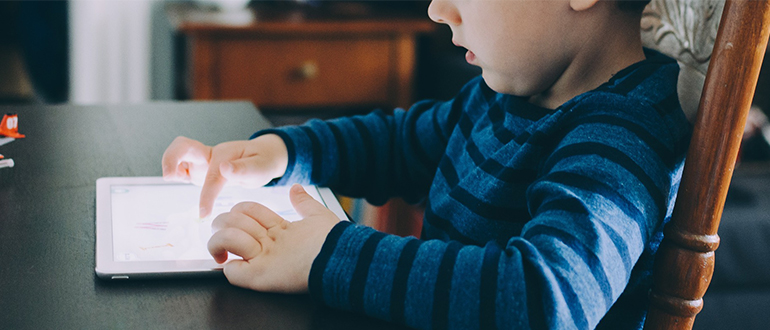
The holiday shopping season is in full swing and when it comes to choosing presents for children, technology often tops the list. While smartphones, tablets and other electronic gadgets are great gift options, there are concerns about how technology can impact a child’s communication and language development skills.
A recent study from the University of Toronto found for children between the ages of 6 to 24 months that for every 30 minutes of daily screen use, their risk of developing speech and language delays increased by 49 percent. Specifically, researchers found difficulties with expressive language, which is how a child learns to communicate their wants or needs.
While more research is needed, experts agree that too much screen time can have negative effects on a child’s communication skills.
“I’m very concerned that we are not preparing our children to communicate because we are simply managing their behaviors by giving them a screen,” said Patricia Mayro, MA, CCC-SLP, clinical educator at the Speech-Language Institute (SLI).
According to speech-language pathologists (SLPs), birth to age three is a crucial language development period. During this time, children absorb the language they hear all around them and eventually learn to communicate on their own.
The American Academy of Pediatrics (AAP) recommends no screen time for children under the age of 18 months. For children between the ages of two to five, the recommendation is one hour per day of high-quality programming.
High-quality programming refers to educational television shows such as “Sesame Street,” which are geared towards teaching children key language skills. And, it’s important for parents to watch these shows with their children.
“If you’re going to have screen time, watch these programs with your child and comment on what’s happening,” Mayro said. “Studies have shown that guided interaction can have a real positive impact.”
As children age, the amount of recommended screen time can be left up to parental discretion. However research emphasizes the benefits of parental participation. It’s important for parents to stay involved in their child’s media habits, to maximize screen time as a means of learning and to teach children how to use technology in a positive way.
“I’m not saying that screens are bad but lack of interaction is bad. Always remember that interaction precedes communication,” said Mayro. “If you can take those moments of interaction, you’re preparing your child for good communication throughout life.”